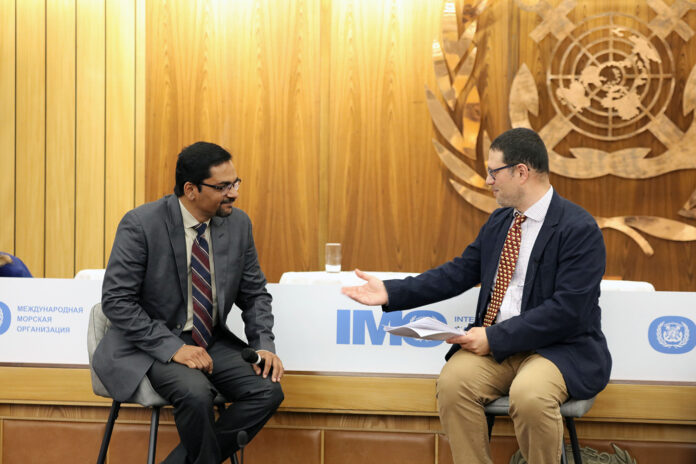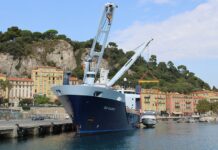
Global maritime leaders have renewed their commitment to fair treatment and due process for seafarers, calling for coordinated action to safeguard crews who are detained in connection with their professional duties.
Meeting at the International Maritime Organization headquarters in London, representatives of the IMO, the International Labour Organization (ILO), the International Chamber of Shipping (ICS) and the International Transport Workers’ Federation (ITF) stressed that seafarers must be treated with dignity and full respect for their human rights, and that unjust criminalization continues to undermine confidence across the industry.
IMO Secretary-General Arsenio Dominguez underlined that global trade depends on the men and women who spend their lives at sea and that their well-being must remain a shared priority. He called for stronger legal protections, greater awareness and closer collaboration throughout the maritime community.
Corinne Vargha, Director of the ILO’s International Labour Standards Department, urged wider ratification and enforcement of the Maritime Labour Convention and better implementation of the IMO–ILO guidelines so that prosecutors and judges understand the unique circumstances of seafaring work.
Thomas Kazakos, the new Secretary-General of the ICS, pledged to continue the cooperative efforts begun by his predecessor, arguing that only strengthened industry-wide cooperation can shield crews from unfair prosecution.
ITF General Secretary Stephen Cotton warned that criminalization is a growing crisis that now demands practical enforcement, reliable data collection and mutual accountability; with the four organizations united, he said, the sector has the collective power to bring about real change.
Case studies presented during the event highlighted the human and operational consequences of criminalization from the perspectives of seafarers, port authorities, supply-chain partners and shipowners.
The IMO and ILO, working through their tripartite group with industry partners, have already adopted new “Guidelines on the Fair Treatment of Seafarers Detained in Connection with Alleged Crimes,” approved by the IMO Legal Committee in April.
These guidelines address due-process guarantees, protection against arbitrary detention and intimidation, and the safeguarding of wages, medical care and repatriation rights during legal proceedings. They also promote closer coordination among flag, port, coastal and labour-supply states, as well as shipowners and crews.
Looking ahead, participants called for tangible follow-up measures.
They advocated robust national policies, targeted training for judicial authorities in maritime law and seafarers’ rights, and stronger coordination between governments and industry to ensure the rapid release and repatriation of detained crew members.
Insurers, including P&I clubs, were urged to provide adequate legal support and uphold seafarer welfare whenever unfair treatment occurs.
Speakers also noted that criminalization disrupts crew changes, erodes schedule reliability and exposes the global supply chain to reputational and operational risks; maritime and logistics companies were therefore encouraged to establish clear protection protocols, press for consistent legal treatment across jurisdictions, and invest in welfare and awareness initiatives.





